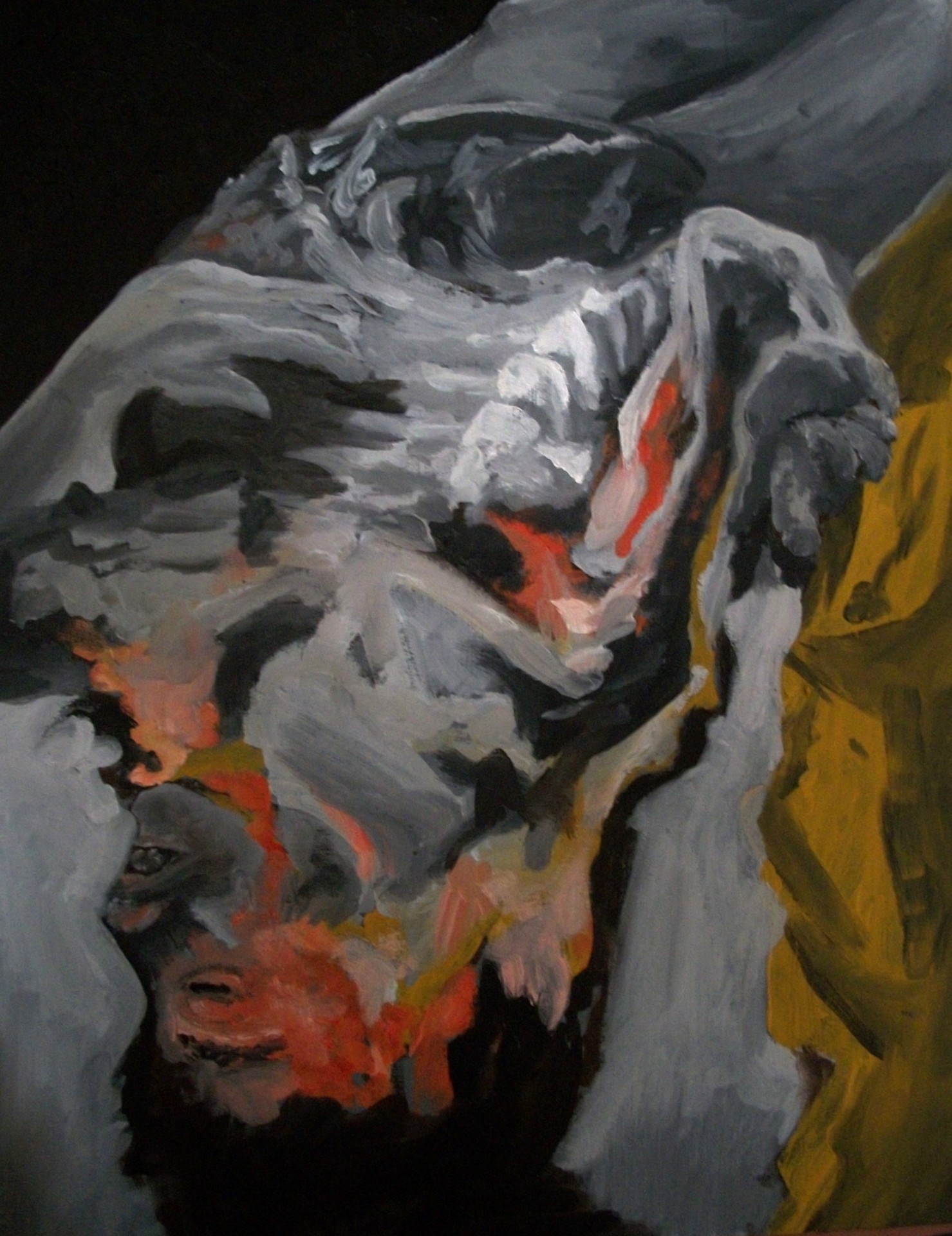TRANSLATED FROM THE ITALIAN BY BRENDA PORSTER

Image used for Representation
NAKED
There is always someone left naked
and it is not the Nazi
or this would be another story.
Naked in front and behind
with a pitcher of emptiness instead
of his circumstances.
I walk naked on myself
like a dying insect
on an unknown body,
on a body that is a mute surface,
spongy, nameless skin,
nakedness
has no name.
The insect falls asleep,
the body smelled of forbidden signs.
The one who is left is going away
inside his nakedness.
Perhaps a photo can call up his memory,
perhaps the body can do more
than slink off in silence.
Perhaps that remembered body
finds new pastures in pieces
and those pieces compose
the instants of Time
mark the hours
lead the sun in its seasons;
it may be that the body becomes time,
dust with no objectivity
that grips it
This will not be the body of the Nazi,
of the one who is still dressed,
wearing his pelts
with his conduct inscribed on his face,
with his belly, though crying,
covered. With his uniform.
The one left naked is canceled
but reappears in another place.
SONG
I chant a funeral song
in the dark of the night
age-old it comes,
from an unknown
part of me, it is
able to wear it,
the part is connected
it is light become song
the song is now and I
am ready to honor the dead.
The voice will soothe, naked,
a moment of despair.
It will show us living
the sorrow and impotence
that only the funeral song, in dream,
keeps at bay.
The fountain held in two hands,
where the two hearts stand,
these are not sacrifices.
It sings because it wishes to die,
it sings because it wants to honor,
singing to wipe away the shame
the western passage
has surrendered to it.
I sing on my knees and am certain
this is the right song.
I am western, I am eastern,
and I have a scar in my flesh.
I am not only spiritual.
I am a concave instrument
I am able to prepare food
and offer it to the living,
I know I may die suddenly
without a heart to watch over the causes,
with the impassive coldness
of an amiable partner,
one of these. From the west.
To fall. But before falling
you will hear a body
a vulnerable body singing,
only for the dead.
Only for a world
that cannot be explained,
for an ineffable sense of happiness
known only by one who sings
for the other, for almost all the others,
making something with them
that will remain above the tombs.
FISH
You called fish
what came to shore
flat and lifeless
what was carried in a slow, dark part
inside the riverbed.
You did not want to be a fish.
You called autumn
you called light
the lamps stuck into hours
like white moon-slivers on fingernails.
You called
and a paintbrush punctuated in air
what does not come out of the mouth,
black letters
stuck
between eyelash and plexus.
You are the fish I dream
you are the fish and the black river
and you cannot sit next to us.
Next to me a river passes,
cul-de-sac of a city
that lives hurriedly by day
and hardly watches the night.
Next to us flow people
who are not only faces.
While you, who were an apparition,
who were a standing wound,
have never healed.
On the edge the net is left,
no pearls inside
but bodies tossing
between the last soil and the sand.
Sadly the skate moves,
it comes from distant seas
it hits its head against the soft mud
of the riverbank.
HOSTAGES
We’ll still be hostage to things
unless you go on
healing the dear’s injury
while you keep the olive tree at bay
and skirt it until dusk.
the black mane drifts
on the eaves, saving the cat
and the sun from my heated belly
sings kicking the segregation
of blind, twisting alleys.
In grasping the treatment
we have turned wild,
laying the alliance
we grow tame anew.
I burn in the attention
where we love
trees bending
over our beds.
In the shape of a bat
a love has grown
a devil and furious
with a werewolf eye
in its navel.
I enter the room,
a spicy scent
envelops and bitter liquid flows,
the unfinished gaze of Cain.
Also, read A Writer’s Joy and Other Poems by Akhmet Baitursynuly, translated from the Kazakh by Jake Zawlacki, and published in The Antonym
Follow The Antonym’s Facebook page and Instagram account for more content and interesting updates.



























0 Comments